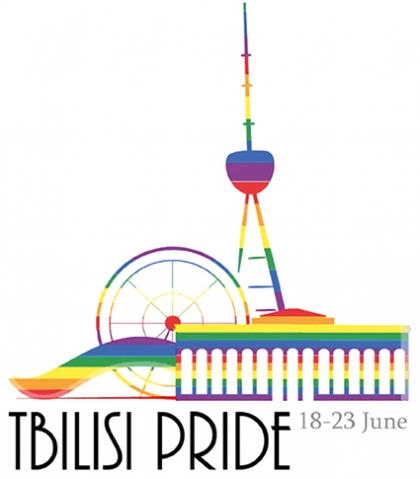Far-right Groups Release Homophobic Comments in the Lead Up to Tbilisi Pride
The first pride event in Georgia, Tbilisi Pride, will be held June 18 - 23. The event hopes to raise awareness and spark healthy conversation about the LGBTQI community in Georgia. However, a traditionally conservative country, Georgia has a poor track record for protecting the human rights of its LGBTQI community.
Previous gay rights events in Georgia have been met with difficulties. On 13 May 2013, LGBTQI rights demonstrators were violently confronted by anti-protestors as they demonstrated for the International Day Against Homophobia, Transphobia, and Biphobia. The church and far-right groups played a key role in the event, with anti-protestors holding signs saying “We don’t need Sodom and Gomorrah in Georgia” and “Stop promoting homosexual propaganda in Georgia.”
Some members in the LGBTQI community in Georgia fear that the organization of Pride will cause a surge in violence towards them. Indeed, Success Bar, Georgia’s first gay bar, reportedly plans to shut for the duration of Pride.
As Tbilisi Pride draws nearer, the far-right in Georgia has begun to spread homophobic rhetoric once more. Since the event was announced at the beginning of March, homophobic comments have become more prevalent on social media pages of anti-western, right-wing groups.
For example, Georgian March, a far-right group described as a neo-nazi organization by Transparency International Georgia, released a Facebook video threatening to sabotage the event. They claim in the video that the only way the “celebration of perversion” would take place would be if the activists “march over Georgian March’s dead bodies,” reported Eto Buziashvili, a researcher at the Digital Forensic Research Lab.
Similarly, other groups have posted homophobic content since March. Kardhu, a popular anti-western group with over 25,000 online followers, has posted homophobic content frequently, such as underlining Poland’s same-sex marriage ban.
A newly created group, the Antiliberal League, also shared memes that were anti-LGBTQ whilst the Anti-Liberal Club, a group with over 50,000 followers, highlighted how the US is too lenient towards LGBTQI rights.
From January to April 2019, many right-wing groups increased their number of followers. Right-wing groups Kardhu, Alt-Info and Anti-Liberal Club increased their followers by 1,700, 4,500 and 522 respectively, reported Eto Buziashvili.
Georgia has considered discrimination against the LGBTQI community and a person’s sexual orientation to be a criminal offense since 2014. Nonetheless, traditional orthodox views hold a strong grip on public opinion. In 2013, the anti-demonstration was organized following comments by church leaders.
Organizers of this year’s Tbilisi Pride want to move away from the cycle of violence that has surrounded pro-LGBTQI events in Georgia. The five-day event will take place in June rather than on 17 May, as it has done in previous years. In addition, various talks will be held to raise awareness and spark healthy conversation.
Georgia’s violent track record towards the LGBTQI community demonstrates the need for the conversation that Tbilisi Pride hopes to encourage. However, it is essential that its supporters are sufficiently protected to avoid the violence of previous events. With such ingrained beliefs, it is a difficult topic in Georgia. However, public attitudes may begin to change thanks to awareness events such as Tbilisi Pride. Bidzina Ivanishvili once said, “sexual minorities are the same citizens as we are... society will gradually get used to it.”
By Amy Jones












